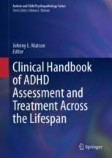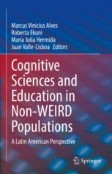Search
Search Results
-
Test-retest reliability of the play-or-pass version of the Iowa Gambling Task
The Iowa Gambling Task (IGT) is used to assess decision-making in clinical populations. The original IGT does not disambiguate reward and punishment...

-
Decision-making under ambiguity and risk and executive functions in Parkinson’s disease patients: A sco** review of the studies investigating the Iowa Gambling Task and the Game of Dice
Evidence shows that patients affected by Parkinson’s disease (PD) display the tendency toward making risky choices. This is due, at least in part, to...

-
Concussion history associated with adolescent psychological distress but not hazardous gambling: a cross-sectional study
BackgroundSustaining multiple concussions over one’s lifetime may be associated with behavioral and mood changes beyond the acute phase of injury....

-
Decision-making inflexibility in a reversal learning task is associated with severity of problem gambling symptoms but not with a diagnosis of substance use disorder
BackgroundDecisions made by individuals with disordered gambling are markedly inflexible. However, whether anomalies in learning from feedback are...

-
Comparing Influence of Depression and Negative Affect on Decision Making
The current study aimed to explore differential value-based decision-making patterns across three groups—individuals diagnosed with mild-to-moderate...

-
Sweating the small stuff: A meta-analysis of skin conductance on the Iowa gambling task
To systematically examine the role of anticipatory skin conductance responses (aSCRs) in predicting Iowa Gambling Task (IGT) performance. Secondly,...

-
The role of inhibition capacities in the Iowa gambling test performance in young tattooed women
BackgroundUsing the Iowa Gambling Test (IGT), we demonstrated previously impaired decision- making process in young tattooed women. The purpose of...
-
The effects of sound in the Balloon Analogue Risk Task
In this study, we examined the effects of pairing sounds with positive and negative outcomes in the Balloon Analogue Risk Task (BART). A number of...

-
The role of sibling aggression during childhood in decision-making during adulthood
Research shows sibling relationships can influence cognitive development, specifically in terms of high-order processes involved in social...
-
EFs in Pathological Gambling Disorder
A depth analysis of executive functions (EFs) in the context of pathological gambling disorder was conducted. The need to use different methodologies...
-
The outcome-representation learning model: impairments in decision-making in adolescents with excess weight
Impairments in decision-making have been suggested as a predisposing factor to obesity development. Individuals with excess weight display riskier...

-
Positive cognitive reappraisal is beneficial for women’s but not for men’s IGT decision-making
Real-life decision-making involves a balance between emotion and cognition, a process that is mirrored in the Iowa Gambling Task (IGT). Previous...

-
The influence of Facebook intrusion and task context on cognitive control
Social networking sites, especially Facebook, have become increasingly popular over the past decades. However, besides the benefits of using...

-
Monoamine Oxidase-A and Conduct Problems in Children: The Role of Affective Decision-Making
Genetic factors are a well-established risk factor for children's conduct problems. Specifically, the low activity variant of the Monoamine Oxidase-A...

-
Avoidance in Adolescence: The Balloon Risk Avoidance Task (BRAT)
A large body of work documents the utility of behavioral risk tasks for making inferences about adolescent risk-taking proclivities and related...

-
Cognitive Processes Underlying Impaired Decision Making in Gambling Disorder
In contemporary society, gambling is perceived as a recreational activity whose popularity continues to rise. Nevertheless, for some individuals, the...
-
The self’s choice: Priming attentional focus on bodily self promotes loss frequency bias
When attention is focused on self representation(s), the ability to evaluate one’s internal sensations is enhanced, according to previous research...

-
ADHD and Risk-Taking Behavior: Associations, Mechanisms, and Interventions
One of the most concerning aspects of attention-deficit/hyperactivity disorder (ADHD) is its association with numerous risk-taking behaviors....
-
Comparing four algorithms in predicting the risk of driving under the influence of alcohol among individuals with alcohol use disorder
Driving under the influence of alcohol (DUIA) is closely associated with alcohol use disorder (AUD) because of significant impacts of alcoholism on...

-
The Role of Local Violence on Children’s Affective Decision-Making
In the context of life history theory, it has been proposed that harsh environments tend to promote the development of immediate reward-oriented...
